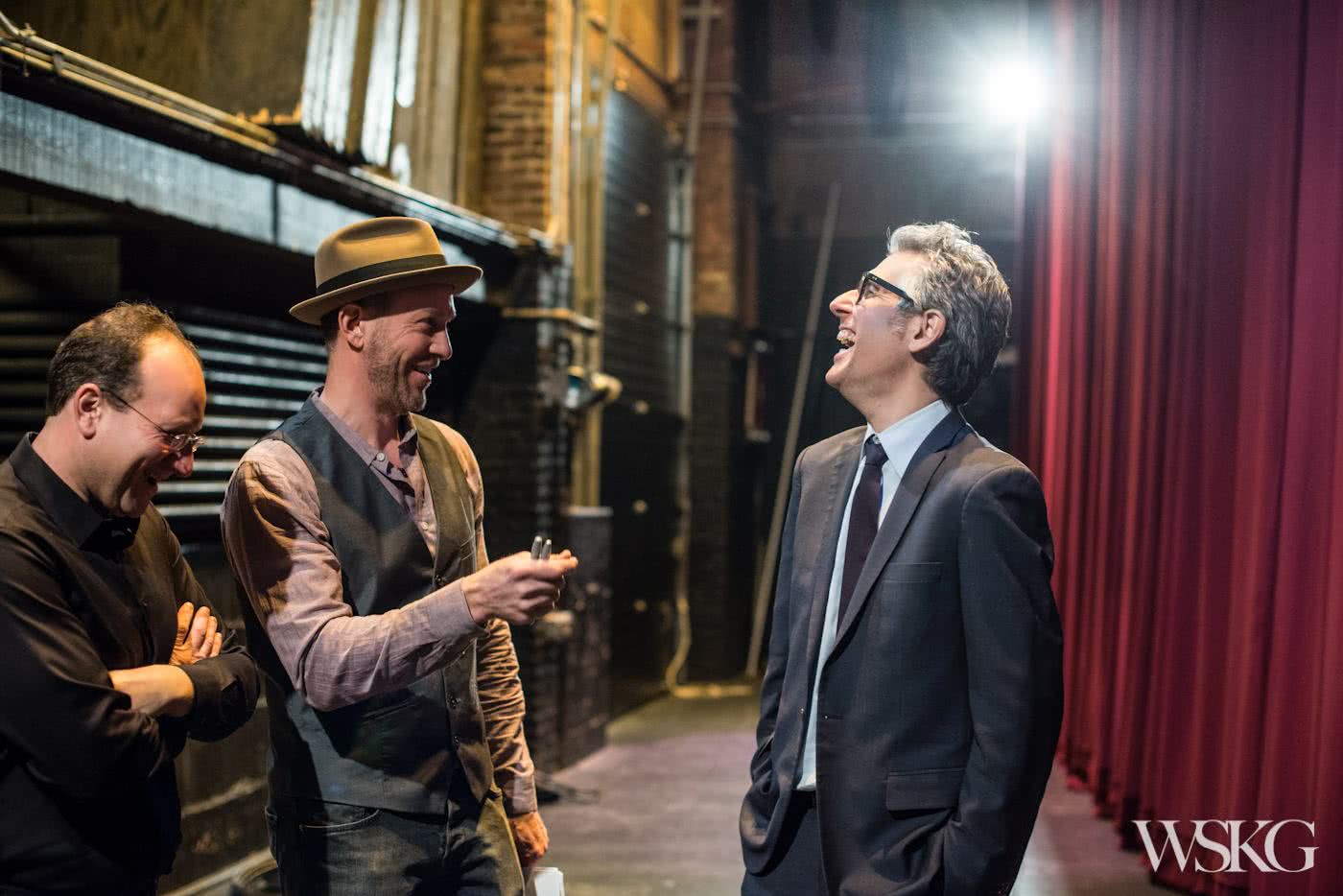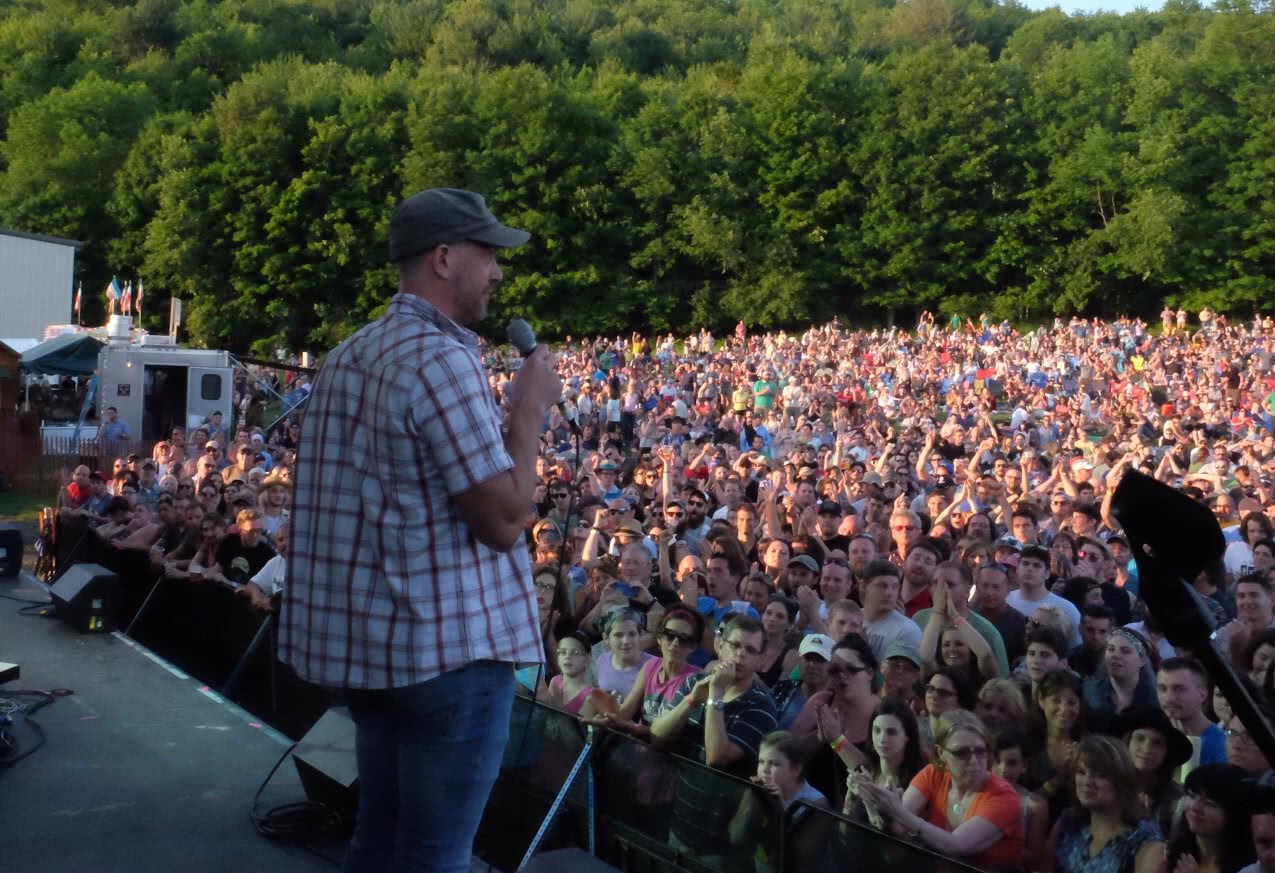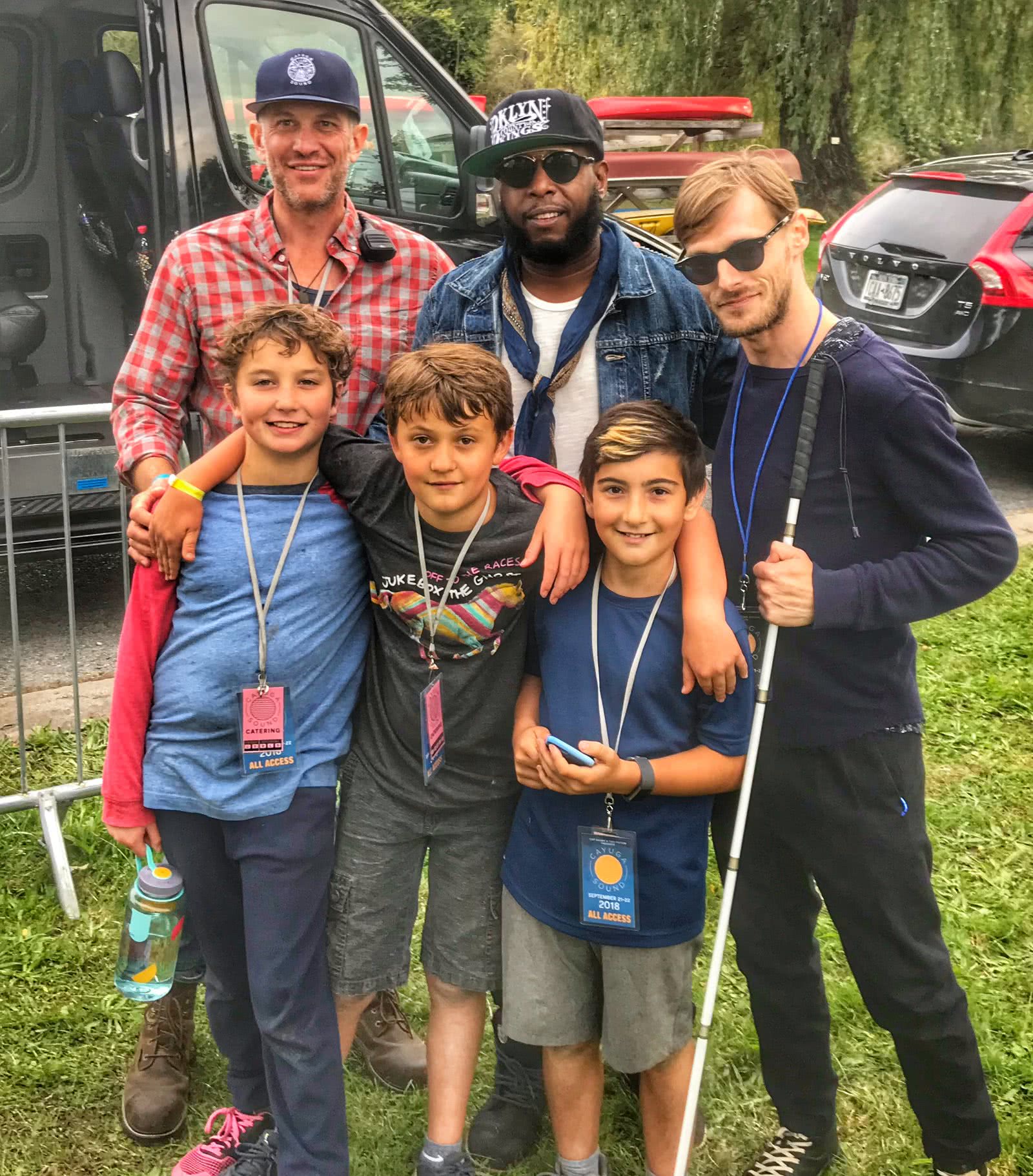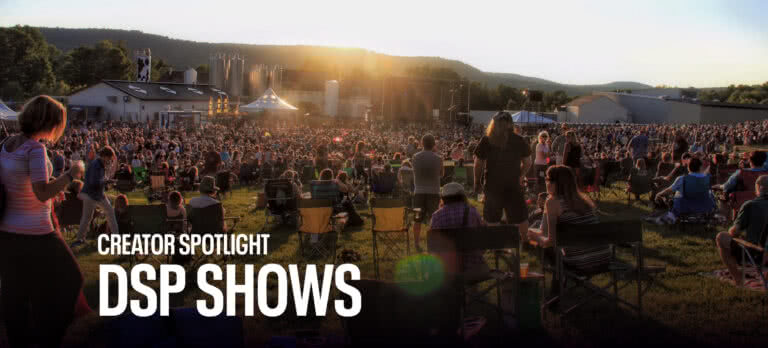“Stop rushing.”
If Dan Smalls, founder of DSP Shows, could tell his younger self one thing, it’d be that.
“We’re in a culture of instant gratification and rushing all the time,” Dan says, “but it’s 100% about relationships, and you can’t force them.”
Dan knows what he’s talking about when it comes to relationship-building. The boutique concert promoter remembers watching Phish play for its first Ithaca crowd of three people around 1989. He still considers singer Trey Anastasio — who performs for up to 100,000 fans today — a friend. Having grown his company from 65 shows annually in 2008 to almost 900 in 2019 — before two years of pandemic shows — he sees attention to detail and personalization as key to the organic growth he’s experienced.

Majoring in “hot nightclub”
Dan hails from central New York (which he calls the “Dirty Dancing” Catskills region) and attended Cornell University. The valedictorian of his high school, he majored in engineering, but on day three of college, he met Blues Traveler at a party.
That was it.
He started, he remembers, “majoring in hot nightclub and minoring in Cornell.” Soon, he’d switched over to business management and marketing, and found himself staying up late working at The Haunt, an iconic Ithaca nightclub. Over the course of just a few months, he climbed from doorman to bartender to manager. He paid Pearl Jam $200 to play the club on their first tour. They were a support act on the Red Hot Chili Peppers tour, and they snapped up another date “to get gas money,” he recalls.
He left Ithaca for a while in 1994 and went for a long ride in the industry, including working for a record label and then Great Northeast producing the first six Phish Festivals. He wended his way back in 2005 after getting married. Today, he loves that his 14-year-old kid can ride a bike around town. He spied a historic local theater in need of new management, and spun off in 2008 to form his own company, DSP Presents, which he now owns with partner John Sanders. Since the formation of what the partners now call DSP Shows, they’ve moved beyond putting on shows exclusively at the local theater and promote shows at small venues all across New York State and New England.
“You don’t have to play Ithaca,” he says of traveling acts. It’s a smaller market. So he digs in, focuses on the minutiae, and makes it almost impossible for bands not to play Ithaca.
“How can I make it incredibly easy for you to choose to play here?” His answer, he found, was to “never let the money be the motivator.” Texan Lyle Lovett coming to town, but iconic Texan beer Shiner Bock not yet available in New York State? Have a pal buy a 12-pack and ship it. Have fresh flowers in the dressing room. Spend a little more on catering, not less. The Indigo Girls didn’t tell Dan what they were reading, but he found out, and it was waiting for them.
 Let your heart guide your bookings
Let your heart guide your bookings
Paying attention to the little things has paid off big-time. These days, Dan grows his business organically. “A band will call me and say ‘Give me the available dates in Ithaca.’” He has never had to travel or do expensive market research in order to convince a town to let him put on shows in their local theater. The venue comes to him and asks him to work with them. “We get more opportunities than we could possibly do,” says Dan.
Though he’s not “handing out apples to fans waiting in line like my mentor, Bill Graham,” the legendary promoter with whom he worked in college, he tries to attend to the fans, too. “It’s everything from how they’re treated by staff on the way in to how security handles things. Make the user experience great.” He keeps his focus on communication, sending emails or texts a week before, three days out, and the day prior, communicating all the rules, information, and emergency data. “Communication is the biggest problem in the world, so we’re trying to make it better.”
“It’s everything from how [guests are] treated by staff on the way in to how security handles things. Make the user experience great.” — Dan Smalls, founder of DSP Shows
This became especially crucial when the pandemic hit with a boom. Dan had booked a sold-out O.A.R. show on March 11th. New York wouldn’t be shutting down large events for three more days, but “we got ahead of it; we called the manager. Cornell is very international,” he says, and although “we were going a hundred of miles when it started,” DSP shut down completely. “Health and safety, first and foremost.” He laid off tons of staff — and today, in the spring of 2022, all but one have returned to work.
Though he did “nothing in 2020,” come 2021, he was hosting “pod shows” — reserved squares for a family or party of four. By autumn of that year, things were pretty normal, he remembers… except only 60 to 70 percent of ticket buyers would turn up. “A lot of them didn’t show up because they were uncomfortable.”

Nowadays, though he considers himself less an extrovert than a guy who would “rather be at home watching the hockey game,” Dan does try to make a moment to see one thing at as many performances as he can.
“There’s a moment at every show, whether we’ve sold six tickets or 600 or 6000, that the artist is stepping onstage, and fans greet them.” (The crowd goes wild.) “I try to be at as many of my shows as possible to see that moment, that connection. Watching that connection happen is what really drives the desire to do this.” He watches from the wings, content to stay in the shadows.
“You can book with your heart or with your pocketbook,” he says now, laughing. “Luckily, Ithaca allows me to be closer to my heart.”
Interested in attending one of DSP Shows’ shows? Follow them on Eventbrite to be alerted when new events are added.
Up next: Read our creator spotlight on How Reggae Fest Is Bringing Authenticity Back to Nightlife.





